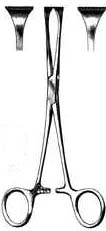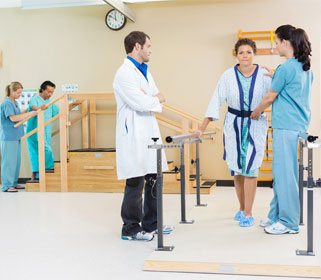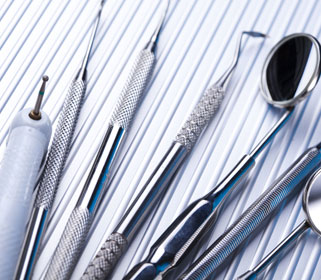Home » Surgical Instruments, Medical Surgical Supplies & Equipment » Surgical Forceps » Surgical Forceps
Surgical Forceps

4in Iris Tissue Forceps, Straight
Retail Price: $33.92
Your Price: $25.44
 Unit: single
Unit: single

Allis-Adair Tissue Forceps, 9x10 Teeth, 6in
Retail Price: $89.70
Your Price: $67.28
 Unit: single
Unit: single

Cooley Vascular Tissue Forceps, 8 in, 2mm Jaws
Retail Price: $198.60
Your Price: $148.95
 Unit: single
Unit: single
Surgical Forceps constitute an essential component of today’s surgical and emergency room device repertoire. Surgical Forceps come in a variety of models and lines, each specifically suited to a unique purpose in modern medicine. The basic design of surgical forceps consists of a pair of arms with points on one end and joined at the other to create a spring like activation. Many surgical forceps also have some sort of locking mechanism to prevent excessive pressure on the object being grasped.
Surgical Forceps are not new to the world of medicine. A number of ancient civilizations employed them frequently in both simple and advanced surgical procedures. In fact, the word “forceps” itself is a Roman word derived from a Latin root that means “to grasp.” Surgical Forceps predate even the Romans, however, appearing in the ancient surgical texts of the Egyptians, Ancient Hindus, and Greeks. The Ancient Egyptians began documenting surgical tools and procedures as early as 2500 B.C. They manufactured their instruments from copper, among which were some of the earliest forceps used in medicine. In India, the great Hindu surgical text, Sushruta Samhita mentions surgical forceps as one of 121 instruments routinely employed in surgery. These instruments were among the first steel instruments manufactured in medicine. Later, in Greek times, Hypocrates recommends a special pair of surgical forceps known as the uvula crusher, which held the infected uvula firmly in place while it was excised in throat surgery. Perhaps the most well preserved surgical forceps from the ancient world come from the Roman Empire. Roman doctors routinely used surgical bone forceps to removed pieces of bone from the skulls of soldiers wounded in battle. They also used these tools to remove bone fragments from fetal skulls suffering cranial impaction.
Thus, the Ancients laid a foundation that we continue to build upon today. Modern surgical forceps have found their way into almost every form of surgical procedure known to man. They routinely assist doctors performing fetal deliveries, skull fracture treatment, removal of gall bladder, kidney and urethral stones, biopsies of all kinds, and ophthalmology and dentistry- just to name a few. In certain newer procedures, smooth-tipped surgical forceps have proven highly valuable to doctors and medical assistants as handling tools for sensitive medical supplies. They provide a strong, sterile surface with which to grip vials, ampules, and tissue samples. They are also highly effective in suturing procedures where time is of the essence and precision is an absolute necessity.
Surgical Forceps come in a great many varieties, models, and sizes specific to their usage. Tissue Forceps feature serrated teeth designed to hold tissue securely with a minimum of pressure. Hemostats are specifically designed for clamping and holding blood vessels to prevent bleeding during operations. Obstetrical forceps assist doctors in episiotomies and breech deliveries, and uterine forceps assist gynecologists in performing hysterectomies.
For complete details on specialized forceps, click on our Forceps Summary section. From there, you can access specific categories itemized in the Forceps /Clamps category of our online inventory.
Whatever your requirements, you can find what you are looking for today in our online inventory. If you have any questions or need assistance, call us toll-free at 1-877-706-4480. Our staff is ready to assist you.














